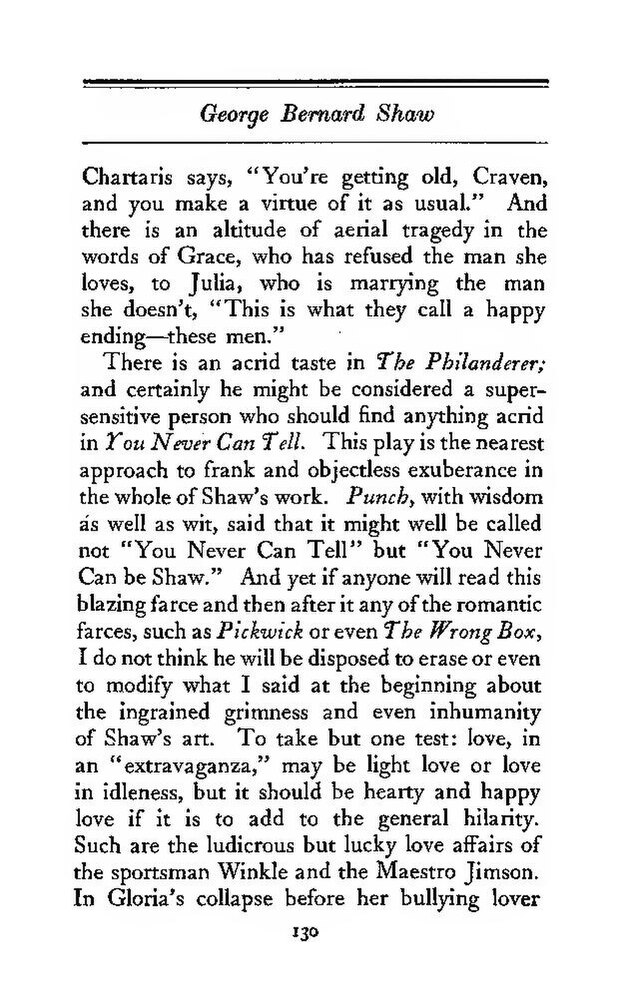Charteris says, "You're getting old, Craven, and you make a virtue of it as usual." And there is an altitude of aerial tragedy in the words of Grace, who has refused the man she loves, to Julia, who is marrying the man she doesn't, "This is what they call a happy ending—these men."
There is an acrid taste in The Philanderer; and certainly he might be considered a super-sensitive person who should find anything acrid in You Never Can Tell. This play is the nearest approach to frank and objectless exuberance in the whole of Shaw's work. Punch, with wisdom as well as wit, said that it might well be called not "You Never Can Tell" but "You Never Can be Shaw."
And yet if anyone will read this blazing farce and then after it any of the romantic farces, such as Pickwick or even The Wrong Box, I do not think he will be disposed to erase or even to modify what I said at the beginning about the ingrained grimness and even inhumanity of Shaw's art. To take but one test: love, in an "extravaganza," may be light love or love in idleness, but it should be hearty and happy love if it is to add to the general hilarity. Such are the ludicrous but lucky love affairs of the sportsman Winkle and the Maestro Jimson. In Gloria's collapse before her bullying lover
130
